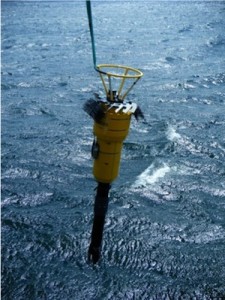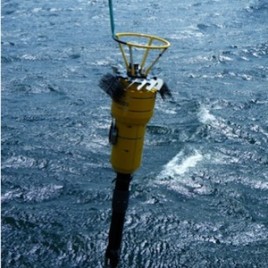
Underwater probes like this one tracked the way in which winds in the Southern Ocean whip up underwater eddies that in turn impact the rate at which deep ocean water mixes with shallower water. Those deep ocean currents are a major reservoir of heat, carbon and nutrients, so changing their mixing rate could have big consequences for global climate. (Photo credit: Katy Sheen)
A new study shows that winds in the Southern Ocean near Antarctica influence the rate at which deep ocean waters – which act as a key reservoir for heat, carbon and nutrients – mix with the shallower waters above them.
Using data from 20 years worth of satellite and probe-based measurements, researchers mapped out how winds in the Southern Ocean whip up eddies, underwater cyclones analogous to storm systems in the atmosphere. These eddies impact ocean velocities from the surface all the way down to the ocean floor, where they scrape along the rough bottom and generate waves that propagate upward through the ocean.
When the waves break, they increase the rate at which the deep waters exchange their contents with shallower waters above. This is important because those deep waters currently store heat and carbon for hundreds of years.
If the winds get stronger due to climate change, the currents may also speed up, reducing the long-term storage of heat and carbon.
Original research paper published in the journal Nature Geoscience on July 13, 2014.
Names and affiliations of selected authors


